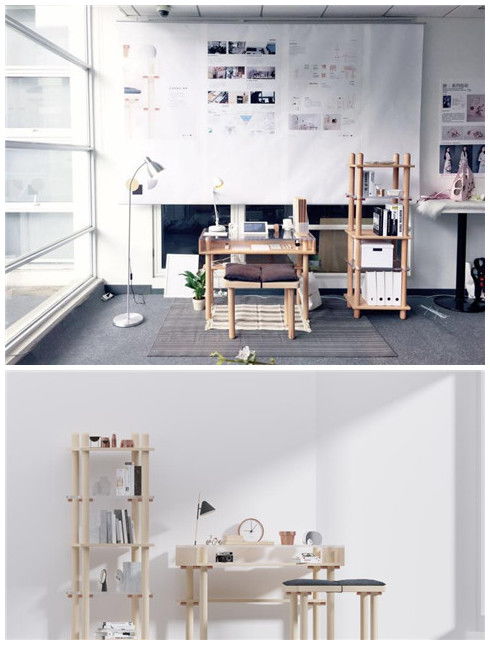南京林业大学家具与设计学院
Career Prospects and Industry Trends:
Fostering Creativity and Innovation:
With the growing emphasis on sustainability and ecoconscious design, graduates proficient in green practices and sustainable materials find themselves in high demand. Moreover, the advent of digital fabrication technologies such as 3D printing opens up new avenues for experimentation and customization, shaping the future of furniture design.
Internship programs further bridge the gap between academia and industry, allowing students to apply their skills in professional settings. These experiences not only augment their skill set but also cultivate invaluable networks within the industry, laying a solid foundation for future endeavors.
Title: Nurturing Creativity and Craftsmanship: Insights into Furniture Design Institutes
One of the hallmarks of Furniture Design Institutes is their emphasis on experiential learning and industry exposure. Institutes often collaborate with renowned designers, manufacturers, and industry experts to provide students with realworld insights and opportunities. Field trips to manufacturing units, design studios, and furniture fairs enable students to witness the entire lifecycle of furniture production firsthand, from concept to market.
Understanding the Curriculum:
In essence, Furniture Design Institutes serve as crucibles where creativity, craftsmanship, and innovation converge. Through a blend of rigorous academics, handson experience, and industry exposure, these institutes empower aspiring designers to embark on transformative journeys, shaping the future of the furniture industry one design at a time. As they step into the realm of design, equipped with knowledge, skills, and a burning passion for creation, they carry forth the legacy of excellence instilled by their alma mater.
From the fundamentals of sketching and rendering to advanced courses in CAD modeling and prototyping, students acquire a diverse skill set essential for the contemporary furniture industry. Moreover, they delve into sustainability practices, understanding the environmental impact of materials and techniques, fostering a responsible approach towards design.
In the realm of design, Furniture Design Institutes play a pivotal role in nurturing creativity, honing skills, and shaping the future of the furniture industry. These institutes serve as hubs where aspiring designers delve into the intricate blend of functionality, aesthetics, and innovation. Let's explore the essence of Furniture Design Institutes, their curriculum, career prospects, and the indispensable guidance they offer to budding designers.
Design studios serve as incubators where ideas flourish, concepts evolve, and prototypes materialize. Whether experimenting with new materials, exploring unconventional forms, or integrating cuttingedge technologies, students are encouraged to explore their creativity freely, paving the way for groundbreaking designs that resonate with contemporary sensibilities.
Through oneonone interactions, design reviews, and workshops, students receive personalized guidance tailored to their unique strengths and aspirations. This mentorship not only enhances their design acumen but also instills confidence, resilience, and a lifelong passion for the craft.
Furniture Design Institutes typically offer comprehensive programs that blend theoretical knowledge with handson experience. The curriculum encompasses various facets of design, materials, ergonomics, and manufacturing processes. Through studiobased projects, students explore design principles, conceptualization techniques, and prototype development under the mentorship of seasoned professionals.
Upon graduation, students of Furniture Design Institutes embark on diverse career paths within the furniture and design industry. While some may join established design firms or manufacturing companies, others choose to pursue entrepreneurship, launching their own design studios or boutique furniture brands.
Experiential Learning and Industry Exposure:
Conclusion:
Creativity lies at the heart of furniture design, and institutes play a pivotal role in fostering and nurturing this innate quality. Through brainstorming sessions, design workshops, and collaborative projects, students are encouraged to think outside the box, challenge conventions, and push the boundaries of innovation.
Guidance and Mentorship:

Central to the journey of every aspiring designer is the guidance and mentorship provided by experienced faculty members and industry professionals. Faculty members not only impart knowledge and technical skills but also serve as mentors, offering invaluable insights, critique, and encouragement.
本文 山东三盐网 原创,转载保留链接!网址:https://www.ex-salt.com/post/5715.html
1.本站遵循行业规范,任何转载的稿件都会明确标注作者和来源;2.本站的原创文章,请转载时务必注明文章作者和来源,不尊重原创的行为我们将追究责任;3.作者投稿可能会经我们编辑修改或补充。

